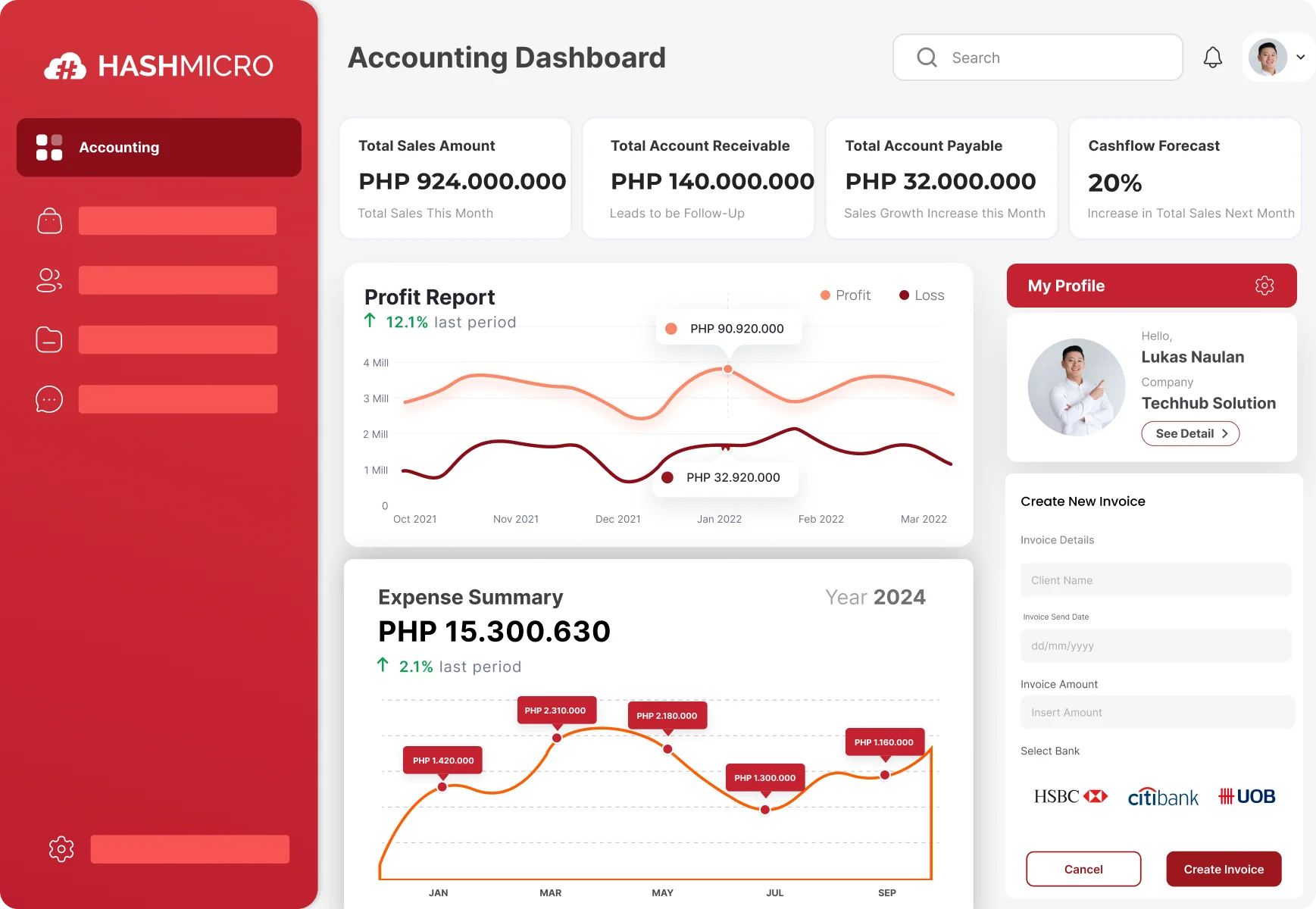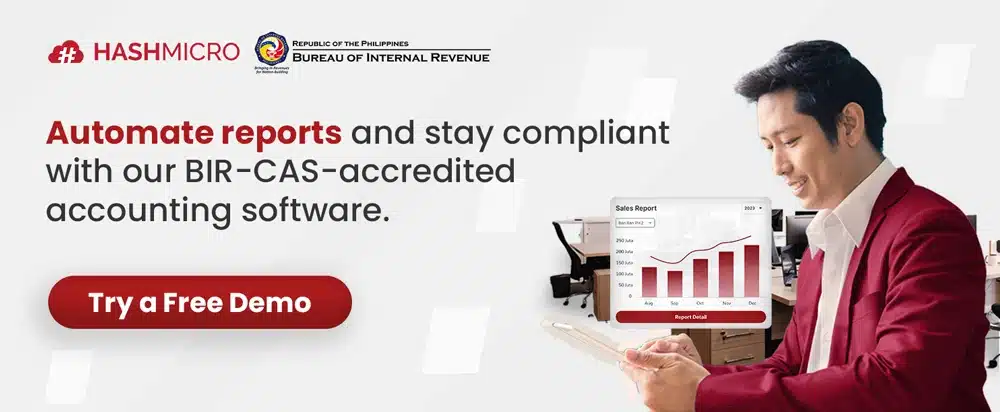Many businesses face financial mismanagement due to inaccurate data and reporting. Poor cost tracking and budgeting issues lead to misguided decisions. Without a clear strategy, companies risk reduced profitability and inefficiencies.
Walang negosyo ang gustong makatagpo ng ganitong mga pag-urong.
Managerial accounting offers structured financial insights to enhance decision-making. With accounting software, it boosts accuracy and efficiency for strategic decisions. Companies can automate data collection, generate real-time reports, and improve cost analysis.
Are you keen to know more about managerial accounting? Continue reading to explore its key principles, benefits, and implementation strategies!
Table of Contents

Key Takeaways
|
What is Management Accounting?
Management accounting, also known as managerial accounting, is a process that involves analyzing, interpreting, and presenting financial data to support internal decision-making.
Unlike financial accounting, which focuses on external reporting, accounting management helps businesses plan, control operations, and optimize performance by providing relevant financial insights.
Managerial accountants play a crucial role in this process by collecting and analyzing financial information to assist management in budgeting, forecasting, and performance evaluation.
They prepare internal reports, assess cost structures, and identify financial trends to improve efficiency and profitability. Their work ensures that decision-makers have accurate and timely data to enhance business strategies and drive sustainable growth.
How Managerial Accounting Works
Managerial accounting collects and analyzes financial data for internal decision-making. It starts by gathering raw information from sources like sales records and production costs, which is then processed to generate insights.
After structuring the data, managerial accountants use analytical techniques like budgeting and cost analysis. Variance analysis helps compare actual performance with budgets, identifying inefficiencies.
Break-even analysis determines the sales volume needed to cover costs, guiding pricing strategies. Financial forecasting predicts future revenue, expenses, and market trends, enabling proactive decision-making.
Managerial accountants create internal reports, such as cost reports and profitability analyses. These reports help allocate resources, optimize workflows, and mitigate risks. Businesses can use these insights to enhance profitability and sustainability.
Types of Managerial Accounting

There are various types of accounting, and managerial accounting focuses on financial analysis to support business decision-making. It helps organizations evaluate costs, forecast trends, manage cash flow, and improve performance. Below are key managerial accounting types.
1. Cost accounting & product costing
Cost accounting helps businesses analyze and manage production expenses to set profitable prices while maintaining cost control. Techniques like product costing allocate expenses efficiently, ensuring sustainable profitability.
2. Budgeting, forecasting & trend analysis
Budgeting and forecasting enable businesses to plan finances by estimating revenues and expenses. Monthly and annual budgets regulate spending, while forecasting and trend analysis help identify market patterns for data-driven decision-making.
3. Cash flow & financial analysis
Effective cash flow management ensures businesses meet financial obligations and avoid liquidity issues. Monitoring cash flow prevents shortages and optimizes capital use. Financial leverage metrics and profitability ratios assess a company’s economic health, guiding investment decisions.
4. Accounts receivable & working capital management
Managing accounts receivable ensures timely payments, improves cash flow, and minimizes credit risk. Proper credit assessment allows responsible lending while maintaining financial stability. Strong working capital management supports smooth operations without liquidity concerns.
5. Performance measurement & operational efficiency
Businesses evaluate operational efficiency using performance measurement tools. Inventory turnover analysis tracks sales trends, while constraint analysis identifies bottlenecks hindering growth. Financial benchmarking compares performance to industry standards, highlighting areas for improvement.
6. Decision support & strategic planning
Managerial accountants provide financial insights that guide critical business decisions. Capital budgeting assesses investment profitability, while opportunity cost analysis helps determine outsourcing vs. in-house production. These strategies optimize operations and maximize returns.
Importance of Managerial Accounting
Managerial accounting is essential for businesses to maintain financial stability and make informed decisions. It provides valuable insights into cost control, budgeting, and performance evaluation. Below are key reasons managerial accounting plays a vital role in business success.
1. Improves decision-making
Managerial accounting provides financial insights that help businesses make informed strategic decisions. It ensures data-driven planning for cost control, budgeting, and resource allocation. To make more accurate decisions, you can use accounting software from HashMicro.
HashMicro’s Accounting Software automates financial reporting, budget forecasting, and cost analysis, allowing businesses to make informed decisions. It features real-time data integration, multi-branch financial consolidation, and AI-driven analytics, enabling profitability tracking, expense control, and greater economic efficiency.
2. Enhances cost management
Analyzing production costs and expenses can help businesses identify inefficiencies and optimize spending. Cost accounting techniques ensure profitability while maintaining competitive pricing.
3. Optimizes financial planning
Budgeting and forecasting help predict revenue and expenses, ensuring financial stability. Accurate projections allow businesses to allocate resources effectively and plan for growth.
4. Strengthens cash flow management
Tracking cash flow and working capital prevents liquidity issues and ensures smooth operations. Effective management reduces financial risks and supports business sustainability.
5. Boosts operational efficiency
Performance measurement tools in an accounting system help identify bottlenecks and improve productivity. Techniques such as benchmarking and constraint analysis promote process improvements for enhanced efficiency.
6. Supports risk management
Analyzing financial data helps businesses assess investment risks and creditworthiness. Managerial accounting minimizes uncertainties and enhances financial security.
7. Drives business growth
With clear financial insights, companies can make strategic investments and expand operations. Management accounting ensures long-term success and competitive advantage.
Managerial Accounting Topics
Managerial accounting covers various techniques that help businesses analyze financial performance, optimize costs, and support decision-making. These topics provide valuable insights that drive efficiency, profitability, and strategic growth. Below are key issues in managerial accounting.
- Variance analysis
Variance analysis compares actual performance with budgeted expectations to identify discrepancies. It helps businesses understand cost deviations, improve forecasting accuracy, and enhance financial control. - Break-even analysis
Break-even analysis determines the sales volume needed to cover total costs. This insight helps businesses set pricing strategies, manage expenses, and assess profitability potential. - Financial statement analysis
Financial statement analysis interprets financial reports to evaluate a company’s performance. It helps managers understand liquidity, profitability, and solvency for better decision-making. - Opportunity cost analysis
Opportunity cost analysis weighs alternative options to maximize resource allocation. It ensures businesses make informed choices between competing investments or operational strategies. - Constraint analysis
Constraint analysis identifies bottlenecks in production or operations that limit efficiency. By addressing constraints, businesses can improve workflow, increase output, and optimize resource use.
Principles of Managerial Accounting
Managerial accounting follows essential principles to ensure accurate financial analysis and effective decision-making. These principles guide businesses in managing costs, optimizing resources, and planning for long-term success. Below are the key principles of managerial accounting.
- Causality principle
This principle states that costs should be linked directly to the activities that generate them. It helps businesses understand cost behaviour and allocate expenses accurately. - Transparency principle
Managerial accounting emphasizes clear and detailed financial reporting. Transparent reports allow management to make informed decisions based on reliable data. - Consistency principle
Managerial accounting methods should be applied consistently over time for effective financial analysis. It ensures comparability and accuracy in cost tracking and performance evaluation. - Relevance principle
Reports and analyses should provide relevant information tailored to management’s needs. Managerial accounting focuses on actionable insights that influence business strategy. - Timeliness principle
Since managerial accounting aids in decision-making, financial data should be provided promptly. Timely reporting allows businesses to respond quickly to financial and operational changes. - Control & accountability principle
This principle ensures that financial resources are used efficiently and responsibly. It supports internal controls, budget adherence, and departmental performance tracking.
Understanding managerial accounting principles helps companies reduce costs, make informed decisions, and improve financial planning. Download our pricing to enhance efficiency and find the right solution for your financial management needs.

Branches of Management Accounting
Management accounting extends beyond financial reporting by supporting business strategy, performance evaluation, and risk management. These branches help organizations make informed decisions, improve efficiency, and safeguard financial stability. Below are the three main branches of management accounting.
- Strategic management
Strategic management focuses on setting objectives and formulating long-term business plans. It ensures that financial strategies align with overall company goals. This branch helps businesses create policies that drive growth and sustainability. - Performance management
Performance management evaluates how efficiently employees and departments contribute to business success. It involves setting performance standards, tracking key metrics, and optimizing processes. This approach ensures continuous improvement and quality outcomes. - Risk management
Risk management identifies financial threats and implements strategies to mitigate them. It addresses market fluctuations, operational failures, and legal liabilities. Businesses use this branch to minimize financial uncertainties and maintain stability.
Management Accounting Basic Framework
The management accounting framework offers a structured method for collecting, analyzing, and using financial data. It enables businesses to track costs, plan budgets, measure performance, and make informed decisions for growth. Here are the key components of this framework.
- Data collection & recording
Management accounting begins with gathering financial and operational data. Accurate record-keeping ensures reliable analysis for budgeting, forecasting, and cost management. - Cost classification & allocation
Costs are categorized based on their nature, behaviour, and function. Proper cost allocation helps businesses understand expenses, set pricing strategies, and control costs effectively. - Budgeting & forecasting
Planning financial resources through budgeting and forecasting ensures businesses maintain stability. These tools help predict revenue, allocate funds, and prepare for future economic challenges. - Performance measurement & variance analysis
Key performance indicators (KPIs) and variance analysis compare actual results with planned targets. This evaluation helps businesses identify inefficiencies and make necessary adjustments. - Decision-making & strategy development
Managerial accounting provides insights for pricing, investment, and resource allocation decisions. Techniques like break-even analysis and opportunity cost analysis guide strategic planning. - Internal control & risk management
Effective management accounting includes internal controls to safeguard assets and reduce financial risks. It ensures compliance with policies and enhances operational efficiency.
Scope of Managerial Accounting
Managerial accounting plays a vital role in business operations by transforming financial data into actionable insights. It goes beyond traditional accounting by focusing on decision-making, planning, and performance evaluation. Below are key aspects that define its scope.
- It relies on financial accounting
Managerial accounting depends on financial statements to interpret data and guide decision-making. Without accurate financial records, management cannot enforce effective strategies. - Goes beyond numbers
Unlike financial accounting, it analyzes the reasons behind financial outcomes. It helps managers understand cost variations, profitability trends, and overall business performance. - Uses practical techniques
It applies methods like standard costing, marginal costing, and project appraisal. These techniques simplify complex financial data, making business planning and allocating resources easier. - Analyzes past & present data
By reviewing historical data, managers can assess the impact of past decisions. It allows businesses to adjust current strategies and improve financial planning. - Aids in goal-setting & performance evaluation
Managerial accounting helps businesses set objectives and create action plans. It also measures departmental performance to ensure goals are met efficiently. - Focuses on forecasting & problem-solving
It emphasizes future financial planning and provides insights to minimize risks. Instead of just presenting financial results, it helps managers anticipate and address challenges.
Techniques in Managerial Accounting

Managerial accounting employs various methods to analyze financial performance, improve cost efficiency, and guide decision-making. These methods help businesses maintain profitability and optimize operations. Below are some key techniques.
- Marginal costing
Marginal costing determines the cost of producing one extra unit of a product. It helps businesses assess whether increasing production is profitable while setting competitive pricing strategies. This method is useful for short-term decision-making and cost optimization. - Standard costing
Standard costing establishes predetermined cost benchmarks for materials, labor, and overhead. Businesses compare actual costs with these standards to identify deviations and control expenses. It improves financial accuracy and helps set realistic production targets. - Budgetary control
Budgetary control involves setting financial plans and continuously monitoring expenses to align with business goals. It ensures effective resource allocation and prevents unnecessary spending. Businesses use this method to track financial health and improve cash flow management.
Limitations of Managerial Accounting
While managerial accounting provides valuable insights for decision-making, it has certain limitations that businesses should consider. Understanding these challenges helps in applying managerial accounting effectively. Below are the key limitations of managerial accounting.
- Reliance on estimates
Many managerial accounting techniques, such as budgeting and forecasting, rely on estimates. Inaccurate projections can lead to poor decision-making and financial mismanagement. - Lack of standardization
Unlike financial accounting, managerial accounting lacks standardized guidelines. Different companies may use varying methods, making comparisons difficult. - Focus on internal use only
Managerial accounting is designed for internal decision-making and is not required to follow external reporting standards. It limits its usefulness for investors and external stakeholders. - Time-consuming & costly
Collecting, analyzing, and interpreting financial data requires time and resources. Smaller businesses may struggle to implement complex managerial accounting systems effectively. - Potential bias in decision-making
Since managerial accounting reports are created internally, they may be influenced by management’s personal biases. It can lead to subjective decision-making rather than objective financial analysis.
Managerial Accounting in Practice
Managerial accounting drives business success by offering insights into decision-making, cost management, and strategic planning. In the Philippines, it is utilized by businesses of all sizes, from SMEs to large enterprises, to enhance efficiency and profitability.
A study by the Corporate Sustainable Management Journal in Quezon province, led by Joseph Alfred M. Reyroso et al., examined SME practices in the Philippines regarding management accounting: costing, planning and control, and strategic decision-making.
The study included 363 SMEs, with 158 participating. Results showed extensive use of costing, especially for sales prices and profits. SMEs utilize cost information to guide product and service creation, ensuring pricing aligns with profit objectives.
The study found that planning and control practices were extensively used. They helped SMEs define metrics, measure outcomes, and provide feedback to keep strategies on track. Financial data-driven strategic decision-making gave SMEs a competitive advantage.
The study highlights managerial accounting’s role in Philippine SMEs. If adopted by large enterprises, these practices could boost operational efficiency and strategic success. Their impact on large enterprises could be even more significant.
Managerial Accounting vs. Financial Accounting
Managerial accounting vs financial accounting serves different purposes within a business. While both deal with economic data, they have distinct objectives, reporting methods, and audiences. Below, we explore the differences between the two and the key characteristics of managerial accounting.
Is financial accounting the same as managerial accounting?
Financial accounting and managerial accounting are not the same. Financial accounting focuses on preparing standardized financial statements for external stakeholders, such as investors, regulators, and creditors. It follows strict accounting standards like GAAP or IFRS and reports historical economic data.
On the other hand, managerial accounting is used for internal decision-making. It provides customized financial insights to help management plan, control, and make strategic decisions. Unlike financial accounting, it is not bound by standardized regulations and often includes forecasts and operational data.
Characteristics of management accounting
Management accounting is vital in helping businesses analyze financial data, optimize resources, and support decision-making. Below are the key characteristics that define managerial accounting and its role in business management.
- Focus on internal use
Managerial accounting is designed for internal management rather than external reporting. It helps businesses make data-driven decisions about costs, budgeting, and operational efficiency. - Future-oriented
Unlike financial accounting, which reports past financial performance, managerial accounting focuses on forecasting and planning for future growth, investments, and cost optimization. - Flexible reporting
There are no strict formats or regulations in managerial accounting. Reports are tailored to the needs of management and can include cost analysis, variance reports, and performance metrics. - Decision-making support
Managerial accounting provides insights that assist managers in making informed business decisions. Techniques like break-even analysis and opportunity cost analysis guide strategic choices. - Detailed & segment-specific
It provides detailed financial data for specific departments, projects, or product lines. It allows businesses to track performance granularly rather than just overall company performance.
Both financial and managerial accounting play essential roles in business operations. While financial accounting ensures regulatory compliance and transparency, managerial accounting helps businesses optimize internal processes and improve profitability.
Streamlining Managerial Accounting with HashMicro Accounting Software

One of the advanced accounting software that supports managerial accounting is HashMicro. With over 2,000 clients served, HashMicro Accounting System helps businesses analyze real-time financial data, forecast trends, and make proactive decisions to optimize operations.
Below are the prominent features of HashMicro Accounting Software:
- Comprehensive financial statements with period comparisons: Generate key economic reports, including the General Ledger (GL), Trial Balance (TB), Profit and Loss (P&L), and Balance Sheet (BS), with period comparisons to analyze financial performance over time.
- Seamless bank integrations: Automatically sync transactions with multiple bank accounts to improve cash flow tracking and reconciliation.
- Flexible budget management: Plan and monitor budgets efficiently with a comprehensive system that supports monthly allocations, carryovers, and purchase control for better expense management.
- Cash advance and realization tracking: Streamline cash advance requests and monitor fund utilization to ensure controlled spending and accurate financial reporting.
- Foreign currency management and revaluation: Handle accounts receivable (AR) and accounts payable (AP) in multiple currencies while automating balance sheet revaluation to account for unrealized gains and losses.
- Advanced financial and accounting reports: Gain deeper financial insights with financial ratios, partner ageing analysis, bank and cash flow statements, tax reports, AR collection summaries, and journal entries.
- Manual and automated double-entry bookkeeping: Maintain financial accuracy and compliance with both manual and automated double-entry bookkeeping, ensuring reliable transaction recording and audit readiness.
Conclusion
Management accounting is vital in helping businesses make informed decisions by analyzing and interpreting financial data. It addresses common challenges such as poor cost control, inefficient budgeting, and lack of financial transparency.
Businesses can leverage accounting software for automation and efficiency to streamline managerial accounting processes. HashMicro Accounting Software offers comprehensive features like real-time financial reporting, automated budgeting, and cost analysis tools.
Take control of your business finances with the right tools. Try our free demo today and experience how automation can simplify financial management and boost business efficiency growth. Dalhin ang iyong negosyo sa susunod na antas sa amin!

Frequently Asked Questions About Managerial Accounting
-
What is the primary focus of managerial accounting?
Managerial accounting primarily focuses on internal reporting to support business decision-making, while financial accounting is geared toward preparing financial statements for external stakeholders.
-
What is the key role of managerial accounting?
Managerial accounting provides crucial financial and non-financial insights to assist internal management in planning and decision-making. It goes beyond reporting numbers by analyzing and explaining the factors behind them.
-
What are the three main objectives of managerial accounting?
The three main objectives of managerial accounting are planning, controlling, and decision-making.



































